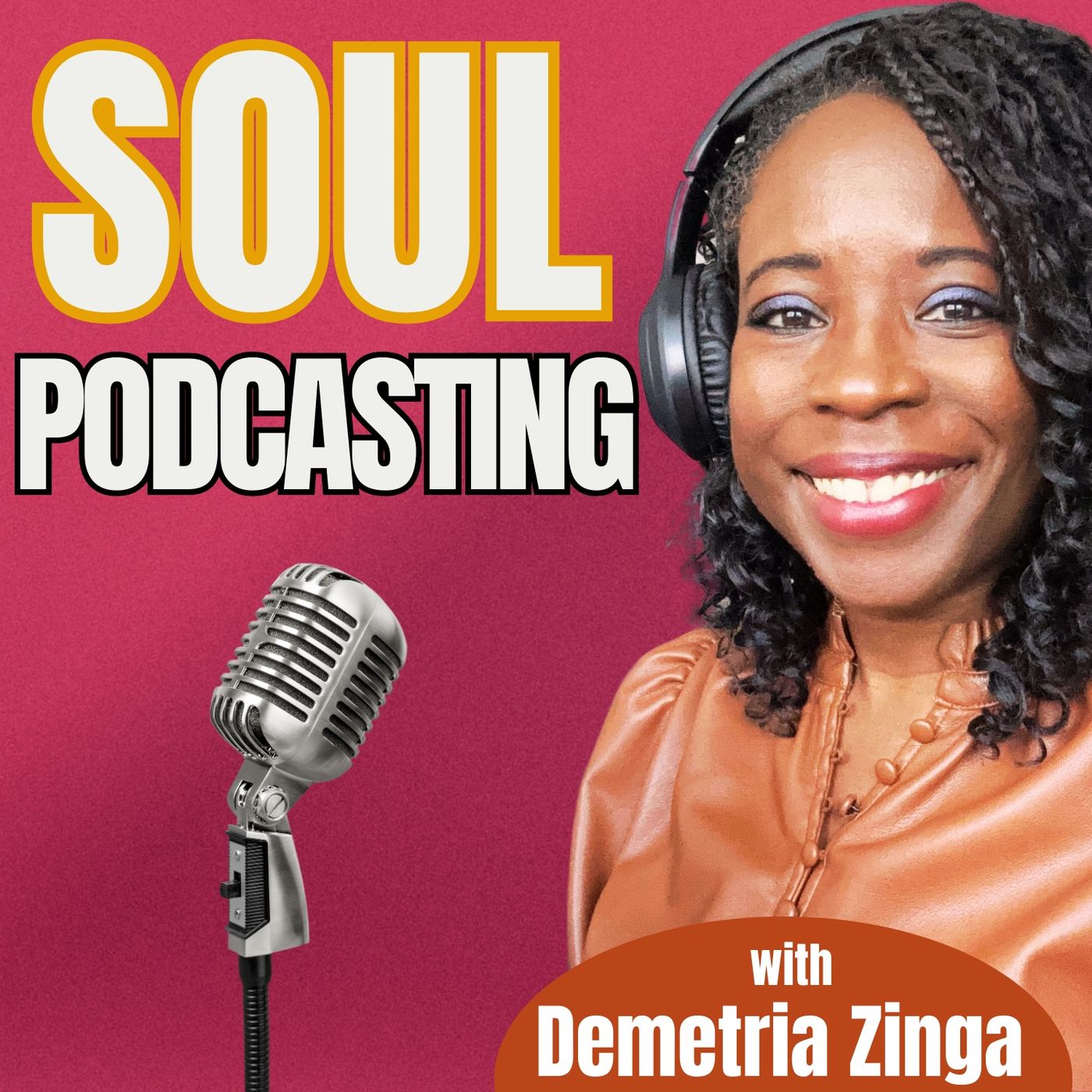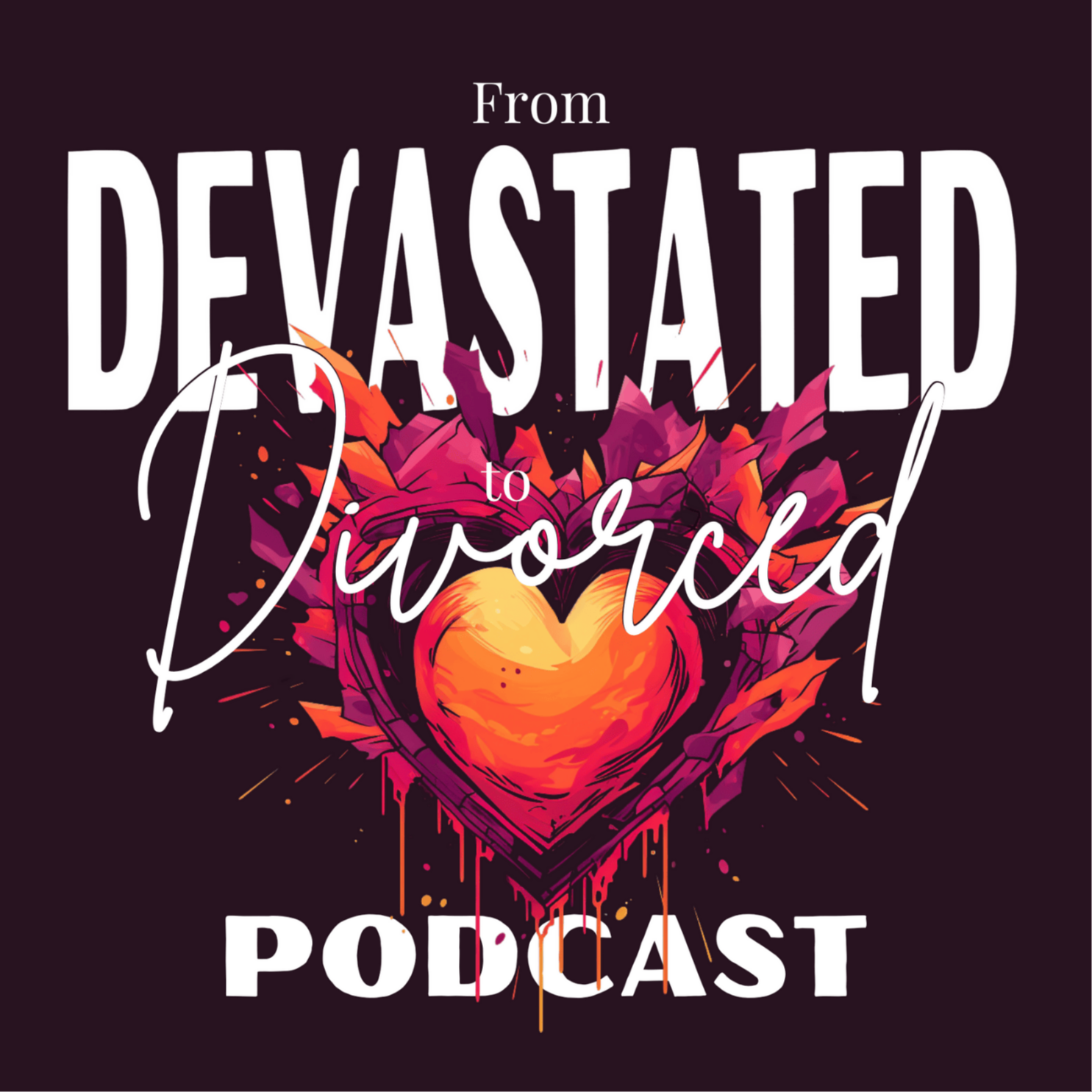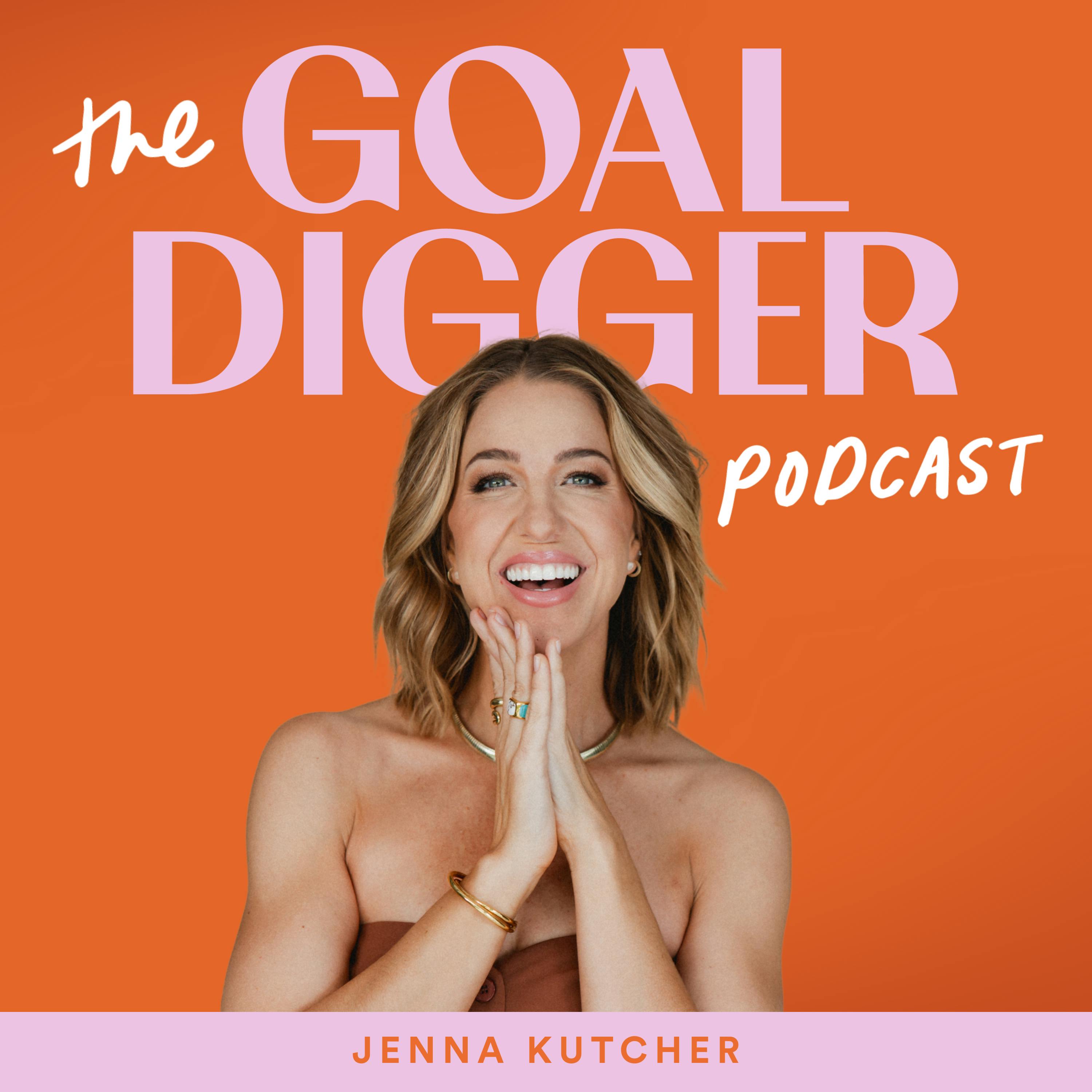
Podcast Your Story: Amplifying Women's Voices in Podcasting
Podcast Your Story is all about helping purpose-driven women own their voice and share their stories as powerful podcast guests and hosts. Whether you’re dreaming of becoming a sought-after podcast guest, ready to launch your own show, or grow an existing podcast, Podcast Your Story is here to guide and support you every step of the way. Listen to inspiring stories from women who are using podcasting to amplify their voices, share their stories, and grow their visibility.
Host Dr. Julie Marty-Pearson, Podcaster, Speaker, Visibility Coach & Podcasting Mentor, brings you practical strategies, honest conversations, and inspiring stories from women who are using podcasting to share their stories and grow their businesses.
Each episode focuses on a powerful theme— from how to become a confident and memorable podcast guest, to how to launch your show without the overwhelm, or how to craft your message for maximum impact. You'll hear a mix of solo episodes, expert interviews, and behind-the-scenes insights designed to help you show up, speak up, and shine.
Because YOUR STORY MATTERS. And your voice is meant to be heard.
Thank you for listening to Podcast Your Story. If you enjoy the show, I’d be so grateful if you’d subscribe, leave a rating or review, and share it with another woman who’s ready to use her voice to transform her life and inspire the world.
About Your Host:
Dr. Julie Marty-Pearson is a Visibility Coach, Podcasting Mentor, and Community Builder for purpose-driven women who are ready to own their voice and share their story. She coaches people to grow their visibility and confidence through podcast hosting, guesting, and speaking.
Julie hosts two podcasts:
🩷 Podcast Your Story, which focuses on amplifying women's voices and practical tips to grow their business through podcasting.
🩷 The Story of My Pet, a Top 5% podcast, sharing inspiring tales of pets focused on advocating and educating for animals rescue, fostering, and adoption.
Julie also created and hosts two communities:
🩷 Women's Podcaster Party Networking Community, for podcasters, guests, and speakers to connect and collaborate. Come check out our Monthly Networking Events.
🩷 Podcast Your Story Community which supports women and non-binary people to become and grow as Podcasters, Guests, Speakers, and Storytellers. To learn more and join, visit Podcast Your Story Community Membership.
Connect with your host–
Website - YouTube - Instagram - Facebook - LinkedIn - Pinterest
Contact your host: julie@podcastyourstorynow.com
Podcast Your Story: Amplifying Women's Voices in Podcasting
Podcaster Madison McGhee: How Personal Tragedy Has Fueled a Groundbreaking True Crime Podcast
Have you ever wondered what it takes to create a true crime podcast that captivates audiences and helps solve a cold case? In this episode, I sit down with Madison McGhee, the creator of the groundbreaking podcast Ice Cold Case, which investigates the unsolved murder of her father from 2002.
We explore the complexities of balancing objectivity with personal connection when investigating such a deeply personal story. Madison opens up about the surprising turns her investigation has taken and how the podcast has become an invaluable tool for gathering new information about the case.
Key insights from our conversation:
- The unexpected ways Madison's background in TV and film production influenced her podcast creation
- How she navigates the emotional toll of investigating her father's murder while producing engaging content
- Her advice for aspiring podcasters looking to share their own powerful stories
Madison's experience demonstrates the potential for podcasting to not only entertain but also to make a real-world impact. Her determination to uncover the truth about her father's case while creating compelling content is truly inspiring. Whether you're a true crime enthusiast, an aspiring podcaster, or simply curious about the power of storytelling, this episode offers valuable insights into the art of crafting a meaningful podcast series.
To learn more, check out Ice Cold Case. You can also hear Madison now as Host of LA Time True Crim Podcast.
Follow Madison on YouTube, Instagram, Facebook. You can also see Madison podcast LIVE on the Family Matters Tour.
Madison McGhee is a Los Angeles-based producer, director, and writer mostly known for her break out podcast Ice Cold Case and now hosting the LA Times True Crime Podcast. Originally from Charleston, West Virginia, her portfolio spans across multiple genres including true crime, comedy, scripted, and documentary.
Connect with your host, Dr. Julie Marty-Pearson –
Website - Instagram - Facebook - LinkedIn - Subscribe to my YouTube Channel
Contact your host via Email: julie@podcastyourstorynow.com
Are you a Podcast Host or Guest or want to become one? Join my new membership Podcast Your Story Community
Come network with other podcast hosts, guests, & speakers at the free monthly events in the Women's Podcaster Party Networking Community.
Shop our affiliate partner Nuvita CBD Use code Julie10 for 10% off!
Listen to The Story of My Pet Podcast- Website - Instagram - YouTube
Hi and welcome to a brand new episode of Podcast your Story. I am your host, dr Julie Morty Pearson, and I am so excited to be back. I'm very excited to start back with a big one, a big one for me. This is someone who I found her podcast. I listened, I loved it, I dove in, I kept listening. I started following her on social, I was engaging with her and one day I said I'm just going to ask her to be on my podcast. So on Instagram, I believe, I DM'd Madison. I said hey, hey, I love your podcast, I love what you're doing, I would love to have you come on my podcast. And she said yes, this is the power of podcasting, you know. Now I will say, since I've recorded this, madison has blown up even more and I will definitely be asking if she can come back for a follow-up for you guys because, wow, she has made some incredible accomplishments, not only with her podcast but other podcasts which maybe I'll mention later on.
Speaker 1:But this episode is all about Madison McGee and her podcast, ice Cold Case. Now, I will admit, I love true crime. I've always been a fan of true crime documentaries, always been a fan of TV shows and movies based on true crime like things solving murders. Even as a kid I loved Murder. She Wrote. I don't know it's always been who I am. So Madison's was one of the first true crime podcasts I listened to. It wasn't a genre I really dove into because I kind of went more to podcasting for fun light-hearted, you know, pop culture stuff or to learn about podcasting, and so when I heard about hers and listened I was just brought in the production, the way she tells the story. But most importantly, what it was about for me was the connection of why she decided to do a podcast.
Speaker 1:Ice Cold Case is about the unsolved murder of her father, something she did not learn until her 20s. That even was a murder. She had always thought her father had died of a heart attack. So not only was that a completely new piece of information for her, being in the production world, in the documentary world, she decided to use her skills and knowledge to try to solve her father's murder. So Ice Cold Case is Madison's account of learning about her father's murder, learning about the details and now investigating and trying to solve it herself. It is really an emotional rollercoaster as a listener, I can only imagine for her.
Speaker 1:But this episode that I recorded again a while back was before her most recent season was put out, but we really talked about her why. Why did she choose podcasting? You know she's made documentary films, she's been in the business, as they say but she chose a podcast, and so I really want you to hear her why why she decided to do something about this, a big part of her life, and why she chose podcasting. I really appreciate Madison's willingness to be open and honest and share this part of her journey with me and with you. I really think you're going to love this episode. I know you're going to learn something. I know you're going to be inspired and you're going to be like dang, she is doing it and again, I will ask her to come back.
Speaker 1:So, with no further ado, a brand new episode of Podcast your Story with my guest, madison McGee. Hello, my friend, welcome back to the Podcast your Story Now podcast. I am super excited. I am a true crime fan. I love true crime podcasts, documentaries and this is someone I've been following for a while. I got hooked on her podcast last year and I'm very happy to welcome Madison McGee to the podcast. Hi, madison, thank you for being here.
Speaker 2:Hi, thank you for having me.
Speaker 1:So excited to talk all things true crime, but first I'm going to tell my listeners a little bit about you. So Madison is a Charleston, west Virginia native, currently living in Los Angeles. She is a television and film producer who has been part of top-rated productions across multiple genres. Currently, Madison is making waves with her groundbreaking podcast Ice Cold Case that delves into the cold case of her father's murder, which remains unsolved after 21 years. This podcast has drawn international attention, earning her the title of Webby Awards honoree in 2024. I saw that. Congratulations.
Speaker 2:Thank you, that's exciting that was crazy, like the most excited I think I've ever been for anything in my life.
Speaker 1:I get it. I was nominated for an award from a very small new award ceremony last year and it's just OK, people get it. People get why I'm talking.
Speaker 2:It's that validation, that like people care, and I think that's like when you start this which I'm sure we'll get into and it feels like there's sort of you're just like sort of doing this and talking into the void or into a microphone or whatever, and then you're like oh, someone on some panel said I like this, and that's really cool.
Speaker 1:It's amazing, it's a big honor. It's amazing, it's a big honor, and I'm so glad for you, not only because you deserve it, but because that just gets you more recognition and more people will start listening, and that's what we all want, right? Totally.
Speaker 2:Totally Thank you.
Speaker 1:So Madison and I were bonding before we hit record. First of all, you can see if you're watching the video. You can see her cat in the background. We are both proud cat moms and we love our cat, as you can see behind me as well. We're also, you know, fans of the Bravo world, which I love having someone to chat about that. But we want to talk about you and kind of your stories. You work in the world of TV and film. Had you ever done anything in podcasting before this, or what made you decide to go into that area?
Speaker 2:So this is a funny little story. I hadn't ever thought about podcasting before, but when I sort of decided that this was the route I wanted to go in to do my story was a podcast, because I had gone back and forth about do I do a doc, do I do a podcast? Like what's the right sort of medium for this? When I had sort of thought, okay, podcast might be the way to go, I realized I didn't know anything about podcasting because I have only done television and film. I was like I have to learn how to podcast because I don't know how. And just the logistics of uploading, how long does it take, populating, sharing, I mean it's like a very weird. There's different platforms to upload a podcast to, and which one's better and how does it all work and whatever. And I was like, okay, I need to practice with something that feels inconsequential, what do I not really care about, that I can start a podcast about to practice, right, and it was summer of 2021. And I was like, oh, big Brother is about to come on, I'll just do a recap podcast about Big Brother for the summer and I'll do every Friday. I'll, you know, teach myself how to like, stick to a schedule, do an episode recap record with a mic and, you know, do all the things. So I did this little Big Brother podcast and I really was not planning on it becoming anything. I was just like, I'm just good, I just want to practice. Well, of course I get really competitive with myself and I was like, oh, I need people to listen to this podcast. So I started doing interviews with people who used to be on the show. So I start interviewing people who were on Big Brother and then they, like, would become my friends. And then the season that I was covering ended and I wanted to interview all the people who were on it. And now one of my closest friends was someone who was on that season of Big Brother. And so then I sort of got integrated into this very weird niche reality TV world in LA which we talked about. How I know so many random people in that space outside of being a producer on other unscripted stuff? And it was all because of this very silly little podcast that I had and I don't do it anymore. Obviously I was really just a practice. There was like no intention of it becoming a thing, but it did gain a little bit of popularity.
Speaker 2:I was talking with Sharon Tharp. Shout out to Sharon Tharp. She used to be the Us Weekly reporter who covered reality TV. We were at a party in November and I saw her and I was like, oh my God, it's Sharon Tharpe, that's so cool. So I said, hello, introduce myself. And she knew my podcast.
Speaker 2:And that was kind of crazy because I was like, oh, I want her to know about, like Ice Cold Case, I want to talk to her about my true crime podcast. Maybe she could introduce me to someone at Us Weekly who could write about it. But she was like, oh yeah, don Prime podcast. Maybe she could introduce me to someone at Us Weekly who could write about it. But she was like, oh yeah, don't care about that, I know your Big Brother podcast. And so that was kind of crazy. But yeah, that's how I. It's a very weird, but that's how I got into it. That's how I practiced, by just doing something that I knew. I didn't want to waste my story on learning the kinks of podcasting and oh, I had a faux pas when I uploaded today and now I have to redo it. I don't want to deal all of that with something so important. So I just practiced with that.
Speaker 1:That's so funny, I love that, and you know it's so funny. I mean totally different. But in some way that's kind of how I started. So when I started my pet podcast, I was like I have no idea what I'm doing. You know, I've learned some basics, I took some courses, but I didn't edit, I didn't do anything, I just started and people started asking to be on it. I'm like, ok, and now it's turned into this thing where it's a passion project. I want to advocate for animal rescue and adoption and people are listening and I don't even have to promote that much, people just are subscribed and keep listening and it's oh OK, people want to talk about this and want to hear it. And now it's taught me all the things to make this new one better. So that's what I love about podcasting you can kind of dip your toe in and see if you like it and maybe even guess on other people. That's what I always tell people to do. If you're not sure, go be on someone else's and see if you'll even like it.
Speaker 2:Totally. Yeah, it is weird. You'd think, even if you like talking, oh, you'll love podcasting. But it is very weird. I mean, even like us right now, like you're not here, right, very weird. Podcasting is very weird. Like, you feel like almost like you're talking to yourself and it's just.
Speaker 1:Yeah, it's a really strange yes Thing especially for you because you do you, you know basically you do it solo. But before we get to that, so the reason you kind of wanted to test out because the story you wanted to tell was really important to you, obviously, so can you tell the listeners a little bit about what that story is and why you decided to start the podcast for it?
Speaker 2:yeah, my podcast is a true crime podcast. I am investigating my dad's cold case murder from 2002, just an unsolved case. It never really went through like a trial. It wasn't like someone was acquitted and they can't find the right person. They just haven't found anyone. It's a very weird sort of set of circumstances and so I started this podcast as sort of an investigative tool. It's weird. It started as like an advocacy tool to sort of get the word out about the case, to put pressure on the police department, and has very quickly turned into an investigative tool of like tips are coming in, of like tips are coming in, information is surfacing and so a lot of my leads are coming now through the podcast, which is really interesting and, yeah, it's my sort of perspective of that journey, but also the case itself and the logistics of the case, the facts, the case files, witness testimony etc. Sort of all wrapped into this. I would maybe say it's like a documentary.
Speaker 1:Right.
Speaker 2:But in a podcast.
Speaker 1:Yeah, and so it's kind of turned you into an investigative journalist in a way, but also a researcher, because you're having, you're getting information, but then you've got to dig more. A researcher because you're having, you're getting information, but then you've got to dig more and you know true crime is such a specific kind of set of skills I would imagine I would have no word, any idea where to start to even get information from the police, let alone to do all the things you've done. So what has surprised you most about the process of where you started and what you thought it would be and kind of where you're at now?
Speaker 2:Oh man, I mean, I thought it was going to be like I don't even know a lot easier. I really and like naively, really did believe that like you could call up any police department in any town in USA and go, hey, I'm curious about the disappearance of so, and they just mail you a box of stuff. That is so not how it works. And so when I called the Belmont County Sheriff's Department to get access to the case files which I'm looking at right here, this is my dad's murder file. This is what's crazy. I'll show you. This is it.
Speaker 1:That's it. Yeah, oh my gosh. Yeah, like you said, you have this idea of like boxes are going to be, like laid down for you, with all this stuff, and it's just like a pile of papers.
Speaker 2:This is literally it, and yeah, so getting this was insanely difficult. It took about nine and a half months for me to get access after the first initial attempt, and then, yeah, I expected there to be more in there. I expected you know even the contents of this file to be more in depth. Give me more explanations. Everything in there is like so confusing and doesn't make any sense, and so I just the whole process as far as, like, the information gathering, was really surprising, because I just didn't know what to expect. I'm also not a journalist, so I have no idea how to like put all of this together.
Speaker 2:Storytelling is like an insanely difficult art. I'm friends with a lot of brilliant storyteller, comedians, writers, filmmakers, and I really underestimated how difficult it is to tell a story from beginning to end, and then, even within that, every episode has to have a beginning, middle and end and, you know, add to the arc of the actual story. And how do you do that when you have no idea where the story is going, because this is still an unsolved case. It's been just challenge after challenge to put this all together on top of you know, actually reading through all of this, investigating, asking myself questions when do I go from here? It's been so much and it's funny, I love. Thank you for saying that I am a journalist and an investigator. I love to hear that because I do not feel that way and I, oh yes, I am.
Speaker 2:But I'm also. You know, I write the episodes, I record them in my apartment, I edit them. I don't mix and master. I'm very fortunate to have a friend who does that for me but right when you know, we get off here, I have to string out an episode, and now we're doing video versions, which is like a whole nother nightmare. So I have to piece all that together. So I'm like an editor as well and, you know, an executive producer, because then I have to oversee everything. When I send it off to be color graded, I have to oversee that.
Speaker 2:And there's just so much involved in all of this that I really was like, when you look at it from far away, you're like you read what 45 pages of a case file and you write a little podcast and you record it and then you're done and that is so, not it? That's just the beginning of all the things. And then the promoting of it is like is so, not it? That's just the beginning of you know all the things. And then the promoting of it is like a whole nother. Yeah, I spend more money and time promoting my show than I do on anything else, and all the other stuff takes up a lot of time, right? So the fact that the marketing takes up double triple, that is like my nightmare. It's crazy. So yeah's a lot.
Speaker 1:Yeah, you know, I think it's like the great thing and not so great thing about podcasting is people see it. Oh, that's easy and in a way, it is to get started and to get up and going. But if you really want to do it well and you want it to be quality story content as well as sound and video and all those, it's a lot. There's a lot of moving pieces and a lot of us. You do most of it or all of it yourself and you know. And then there's the whole, like you said, the marketing piece. Okay, I've created it. Now how do I get people to listen to it? That's just a whole nother job.
Speaker 1:Yeah, but the great thing about podcasting is it can evolve, which I think yours kind of has, as you're been telling the story and, like you said, you start to get more information. I actually just listened to your most recent episode today and the last two episodes have been really interesting because it's been a little different than what you had done prior, because you were actually speaking to someone who has been said to possibly be like the prime suspect in this case, and I could definitely hear a difference in the way your voice is like when you were talking to him, versus when you're like narrating it more. So how has that kind of change and you know you went back to Belmont and all of that process kind of been for you to navigate through?
Speaker 2:oh my god, it's like the most emotional thing ever. I feel like, yeah, my podcast voice is very different than my like regular voice. I also am like a very I don't even know how to explain it you know those people who like smile and laugh when they're like uncomfortable. That's what I do, and I feel like when I was like re-listening before we posted the episode, I was like, oh my god, I'm like laughing when I'm talking to this guy. Is that weird? Do I sound like a serial killer? And no, I think so, like when I listen to it you could.
Speaker 1:it's like you're trying to ease your own nerves and speaking to this person while not acting like I don't know what to think about what he's telling me. You learn things you had never heard before, and so I'm imagining your brain was just going like a million miles a second. Oh, totally.
Speaker 2:It's just the most emotional process ever. Ever, I mean, I don't know of anything I've done up to this point in my 28, almost 29 years of life that has been more emotionally taxing than this, and that moment was probably the peak of you know, the craziness of this journey is, you know, it all culminated into talking to this person and that was just wild. And also in a way where you're like, how do I say this? I feel like when everything you think is true sort of starts to unravel in front of you, it's frustrating and it's just such a weird feeling. And I've had that feeling before because, you know, I thought my dad died of a heart attack and then I found out he was murdered. So that truth was sort of unraveled in front of me and then it felt like, oh, and now here I am again. I believe this truth, and now that is also unraveling and it's very bizarre and this process just in general is insane and I wouldn't recommend to anyone.
Speaker 1:Well, I'm sure there's, because there's two pieces. It's like you creating this art, this content, this story on this side and you're proud of it and you're trying to get it out On this side. It's you, it's your story, it's your life, it's your family. That's what I loved about, I would say, the first season is the way you weaved into the story of what happened to your dad, with your experience of different family members and what you knew when you found out and things like that. So I'm sure it's a lot for you to take on because of the emotional aspect of it.
Speaker 2:Yeah, it really is. It's yeah, because I'm trying to do the job of a journalist, which is to remain as objective as possible, right, but this is like a very deeply personal story and so to try to, you know, showcase that side of it while also sticking to the facts, right, the lines just overlap so much. It's very confusing and it's difficult to write. And I talk a lot about we have to rewrite episodes a lot, because I'll do a first draft and then it's oh, this is too. You've really this is not your diary, madison, and so then we have to rewrite it and it's very difficult to ride that line.
Speaker 2:And you know, I did that on purpose. I set the tone of the show to be that. It could have been, you know, more of a journal, but it's just, that's just not what I wanted it to be or what I envisioned. And you know, we want to keep the tone the same throughout, even as things sort of evolve and shift and adjust. And yeah, it's been a very interesting process point about how to podcast, but also about myself and how I handle these situations and sort of how to process, you know, all of this very crazy stuff.
Speaker 1:Yeah, I'm sure there are moments where you kind of have to give yourself grace and give yourself time. And it's OK if you don't get this done right now, because you're processing something that's like impacting your life and you're like trying to make sense of it too.
Speaker 2:Yeah, totally, and thank God for Bravo. I mean shout it out.
Speaker 1:Thank God for.
Speaker 2:Bravo. Thank God for Bravo. Like I, you know, there are days where I remember I took about I don't know, maybe two weeks I had a launch party for part two of the podcast and I handmade 250 friendship bracelets for everyone who attended the party. And I remember going why did I do this to myself after I had made 20 bracelets? But it ended up becoming such a weird cathartic. Oh, I'm going to take a break from all of this stuff. I just make bracelets and I started playing Real Housewives of Salt Lake City when I started making the bracelets and by the time I finished all 250 bracelets, I had watched all four seasons of Real Housewives of Salt Lake City in two weeks. And that is like mental illness behavior and I should be locked up.
Speaker 1:But, come on, you had to get to the point where you got to receipts through time.
Speaker 2:I had to get to the end and it is such a like I had to just be like. If you need to watch you know a ridiculous amount of Real Housewives of Salt Lake City, ridiculous amount of Real Housewives of Salt Lake City then that's what you need to do today and that's fine. And you know, I do beat myself up about it a little bit because I should be doing you know a hundred other things, but sometimes we all need time and space to just, yeah, you just have to do that and yeah, I gave myself two weeks to watch.
Speaker 2:I mean that's, there are like 25 episodes this season. I watched 100 episodes of Real Housewives in two weeks.
Speaker 1:It's sick, but you know you know you got to do what you got to do. It's funny because you know I'm much older than you. However, you want to say I'm 46. You know I have a lot of education, I'm used to working. You know fancy jobs and Bravo has always been my go-to it's you know. My psychology education kicks in. I just got to understand why these people are acting like this. This is crazy.
Speaker 2:And I think that's why the true crime fans overlap a lot with Bravo reality TV etc. Because it's like the same people that are like well. Why are people killing? People are also like well. Why is this woman, you know, going on television and drinking eight bottles of wine before she films?
Speaker 1:Right, okay, yes, it's that whole like how would you know you're yourself, you're not being someone else? You're actually saying this is you, and. But I love it because it's just, it's entertaining, it keeps you going. And then we have this community online. You know all the well now podcasts. A lot of them started out as social media people who would do all the updates and it's just kind of like a fun little community to be a part of and react with and I couldn't give up Bravo ever. I know I love it, I love it.
Speaker 2:I'm grateful. I was a late adapter, but I'm very grateful that I got.
Speaker 1:Yeah, you know it was back in grad school, I think is probably when I got into it, and it was just that. You know I didn't want to read anymore or write or do any of that. I needed to just let my head do it. And it's still because it's entertaining. Your mind keeps going and you feel like, ok, I'm not just sitting doing nothing at least Totally, although some people don't get it, but that's OK. One of the things I love about Ice Cold Case is and I'm sure there are other two crime podcasts that do this but yours just felt special in that way, the way you tell the story and you have the music and the sound effects and the upbeats and the you know I feel like that really carries the storyline. Was that important to you or did that just kind of come naturally as you were creating it?
Speaker 2:Yeah, everything in this show is heavily considered and thought out and thought through, from the music to you know the timing of breaks in between breaths and like everything is. I go over and over and over everything so many times. And, yeah, that it's. It is such an important piece of this and I have this knowledge just from film and television. A film you should be able to listen to. A film with no music and still have the same emotions that you would if the music was added. It should elevate, but it should never sort of compensate for the writing or anything like that. And that's like an old adage from the film and TV world and people will criticize movies who, you know, rely too heavily on music to build up that feeling. And so I was really cognizant about the music really adding benefit to whatever it was, but also making sure that the words spoke for themselves. And, yeah, it's a really important piece to me.
Speaker 2:And the music, the original music we use, is composed by a wonderful friend of mine, matt Bettinson. He's fantastic and the rest we just get royalty free. But even then I'm like I mean I listen to. Probably it's actually my least favorite part of doing this. It takes the longest for me because I'm nitpicky about the music. I will listen to 400 songs for one section before I'm like, okay, that's the song that goes into the section because it's all so important to me. And if I can't find one, then I'm like the no music, then we just won't have any yeah, it's definitely a rabbit hole you can go down.
Speaker 1:I know when I, you know I only have music for like my intro and rabbit hole you can go down. I know when I you know I only have music for like my intro and outro, but you can go down. Oh no, I don't like that, or no, it's so long, oh yeah.
Speaker 1:And I think that's a hard thing about podcasting in general If you script it, you can pick it apart. When you record the audio, like sometimes I just have to tell myself stop, I don't need to worry about every gap, every every. You know there has to be some natural talking, that's how we talk. But you can really like go hard and then spend time on stuff that maybe isn't as important.
Speaker 2:But sometimes it's hard to back yourself off that.
Speaker 2:Yeah, I spend a lot of time in sort of every phase of the show.
Speaker 2:But yeah, I definitely we're in a unique position because the podcast comes out every other week and, like we recorded on Monday for the one that comes out in two weeks, it's a little stressful because we're like always last minute I mean, we finished today's episode yesterday but it's nice because it doesn't allow me too much time to pour over all these details like 100 times. If we had recorded these episodes five months ago, they would all have been re -recorded five times because I would have too much time to be like, oh, I don't like this, oh, we need to redo this, oh, we can't do this. So it's actually nice that we do it in a bit of a pinch. We could probably give myself an extra week. Maybe the two weeks is a bit of a tight turnaround, but it's nice that we do it sort of within the month because it doesn't allow for too much of that oh, let's change this. Or oh, hearing it back after it's fully done and going, oh, let's just redo it, we don't have time for that, so we don't do that.
Speaker 1:Yeah, there's a good thing about setting a schedule and sticking to it for a lot of reasons, because then you just have to get it out. I'm trying to do that myself. Consistency has always been my biggest issue as a podcaster. I think because of a lot of these reasons, you don't want to just leave it that way or procrastinate, which I have always done. Yeah, those are the hard parts of podcasting, so I'm sure having a strict schedule kind of helps you kind of push yourself along a little bit.
Speaker 2:It sounds yes definitely yeah, the show has to come out when it's supposed to come out.
Speaker 1:Right. So in terms of you know you're in the second season now you, like you said earlier, you're getting a lot of tips, so that's kind of directing some of what you're in the second season now you, like you said earlier, you're getting a lot of tips, so that's kind of directing some of what you're doing and of your research. Where do you feel like the show is going for you now and where what are you hoping to do with it at this point?
Speaker 2:it's a good question. Hopefully I solved the case right, right, yes, ultimately yes.
Speaker 2:I think that it's yeah, I mean, I think similar of the people who were around so that if I refer to them later, you're familiar with them and their story and their role sort of in my dad's life.
Speaker 2:And I end with a theory that I have. And because I did that, people came out of the woodwork and said either no, that's not true, or yep, that's exactly what happened. And so now I'm sort of playing with doing these installments of episodes to end with, okay, and here's a new theory based on all of that. And now here's you know, I'll take six months off or whatever and here's your opportunity to call me up and say actually that's not true, or okay, you're a lot closer than you were before, and just sort of keep doing that until I get to a point where it's like, and now here is exactly what happened. Or now I've gotten this much info I've heard from this person or whatever, and now I'm, you know, much more in tune with the actual series of events that happened that day. So that's sort of my plan as far as how to use this show to solve the case and hopefully it works.
Speaker 1:Yeah, because definitely you're in this unique situation where it's like the story now is kind of evolving as you tell it and changing and it's kind of directing you in a way of where you're going with it. But I know there's some big things you're trying to get to and recently you kind of put out that you have a GoFundMe set up for the podcast. What are you trying to do with that? Where is that going to help you to get to with the case and the story and all of that?
Speaker 2:Yeah, it's crazy how expensive life is. I mean we are living in like the weirdest. I'm not going to get on the soapbox about politics and the economy and whatever, but I am seeing people who were like insanely well off in my opinion like filing bankruptcy and companies that I've looked up to. The production company that made Spotlight and Roma just went under. Yesterday they announced they're closing.
Speaker 2:It's like we are living in a very strange, like borderline Great Depression type of time where, like, things are just crazy and as my show gets bigger, it becomes more complicated, more complicated. I mean even just explaining to you the amount of time it takes to do all of these aspects of my show and I'm doing them. It's basically a full-time job for free, so I have bills that I have to pay and rent and people who are working on the show, with a guy who mixes the show, the guy who makes the music all work for free. No one's getting paid to do this because we're not making any money, but we all have to survive. And it got to a point where I was like we're now, after today, 12 episodes into this show and I can't keep asking people to cut me for like, for how long, 100 episodes. That's crazy, and so I really want to be able to start like building even a small budget per episode to be able to pay people the guy who does the video editing, the guy who does the mixing, like all of this stuff, even if it's not a lot, I want to be able to start compensating people because this is a job, and I think there's this weird connotation that, like, well, if you're doing a passion project, that's what it is, you don't need to get paid for it and it's okay, right, but you could still like your job and get paid for it. That's a crazy thing to say.
Speaker 2:So I decided I'm very I had been advised at the very beginning of this journey to crowdfund and I was adamant that I would never in a million years, ever, ever, ask anyone for money. It just was something that I felt really weird about. I was not comfortable doing it at all. At the time. I was working full time. I mean, I'm a freelancer, but I was working all the time Like I wouldn't have even known I was a freelancer. I was like hopping from job to job. So I was like I'm cool, I don't need to make money off this because I'm doing other stuff. Yes, I'm working late at night, I'm doing all this other you know side hustle stuff, but it's fine because I'm working. So like my bills are getting paid. It's no big deal.
Speaker 2:And when my last television show wrapped on December 23rd, I had this weird feeling that I wasn't going to work for a while and I have not gotten a call for a TV show since, and it's almost the end of April, so I haven't worked in four months. And it was like to a point where I was like, if I can't survive off of this show, then I have to stop doing this show and I need to go, like bag groceries at Trader Joe's or something. And that's just the reality of it and I'm not above any job, like I would do anything. And it got to a point where it was like my ego. I had to put it away and really think about do I want to solve this case? Do I think this podcast is helping me get closer to that? And am I willing to ask people to donate if they enjoy the show in order to help to do that? Donate if they enjoy the show in order to help to do that?
Speaker 2:And it was like, yeah, I have no other option. And I mean, I sat on it for a while. We made the actual GoFundMe on March 16th and I didn't launch it until April 9th or something, because I was like I don't even want to share it, I don't even want to do it, and so it really took me a while to. Even when I post about it now, I'm like, oh my god, but it's been really interesting and beautiful to see people donate because they consume the content and at the end of the day, it's. I have made 12 episodes of something that tens of thousands of people download and find entertaining. Right, like I should get paid for that. Right. I'm like creating entertainment in the same way that Bravo makes money to make TV shows I'm making something that people are consuming.
Speaker 1:They're saying that podcasts are being consumed almost more than TV at this point. Yeah, you know it's a trade-off. Okay, if this is the content you want, you've got to help it keep going in some way, whether it's ads or whatever.
Speaker 2:It feels a lot like public radio and I think about that a lot. When I was a kid, I would listen to the radio with my grandma, like on my way to the school, and they'd be like, hey, if you like this radio station, throw us five bucks a month. And it feels a lot like that. Yes, and it feels a lot like that.
Speaker 1:Yes, so much of what you're saying makes sense. I mean, again, it's a totally different reason behind it and everything. But that's how I felt with my pet podcast, because I've become very passionate about it and I get to have people who are working in shelters and who are running rescues that need people to understand what's happening and how they can help. But I pay for everything. I do it all myself. You know I haven't made any money off of it and it's not big enough. You know you have to have so many downloads to even start to do ads. So there is that point where I'm like, ok, I got it, I got it, something has to give. And so, as part of why I started a second podcast because you know I'm helping people start podcasts so hopefully that can help. But it is hard because you get to this point where you believe in it and there's so much of you in it. You don't want to let that go. But, like you said, the economy is what it is, you got to eat.
Speaker 2:So yeah, I want to help, really help, yeah it's wild and yeah, and I also felt me trying to convince myself that it was okay to do this. I was like, okay, cool, if I get you know 500 people that get $5, right, like I don't need you know everyone to give 500 bucks, that's crazy.
Speaker 2:But if everyone could just give a little bit then now it's like everyone feels like they're part of this and they want me to solve it and they're sort of invested now in this and it feels like you're building this bit of a community, and so that was another way that I justified it in my head of okay, now it's we're really building.
Speaker 2:This is like the core group of people that are really riding for this show. And there are days where I do not want to do this and I want to quit more than anything, and I can look back at that and say, oh, but there's like these people who like really believed in you enough to like give you five bucks or ten bucks or whatever and like now you're sort of doing it for, like, that added reason of, yes, you're doing this for your dad and your family and the closure of it. Right, you're also doing it for the people who, like believe in you enough to like I mean, I don't, like I understand the value of a dollar I do not take even like a dollar donation I do not take lightly and to think about all of the people who have already all of this and, yeah, hopefully we can just keep it going.
Speaker 1:Keep it going. No, I love that because, yeah, I hate that. You know I've said, oh, buy me a coffee, all these different ways you can get a little money. But there is also this if you do it and people do give you money, then there is that incentive. Ok, people believe in this, they believe in me. I have to keep going. I can't just give up now because there's more at stake and that totally is hard to put yourself in that place, but it's also wow. Ok, people do believe in it and I have to keep going. So it's like this great kind of weird place to be at, I'm sure. But you know, I think when people, really when a story or a person or whatever it may be, connects, people, you know, just want to get behind it and help keep it moving.
Speaker 1:You know, just like I'm sure we'd both give money for Bravo to keep going.
Speaker 2:Exactly, I mean, I pay for Peacock every month.
Speaker 1:Oh, yes, I do. You know, I want those extra deleted scenes and and unedited reunions. Thank you very much. So, kind of on a lighter note, I guess I you recently put out some merch that kind of came out as like kind of a haha out of some stuff that happened in the podcast where you have this new thing. It's okay, we can guess Snitch, as Daddy, which is a name your father, was called by someone. So that's kind of like a lighter note of why did you decide to kind of take that little piece of something and turn it into something else?
Speaker 2:Yeah, one of my favorite things I've ever heard in my life. So, yes, in June of 2023, I received a message on Facebook from a cousin of mine who said that my dad deserved to die because he was a snitch ass daddy. And I think she I mean, obviously she meant to hurt my feelings, but there was just something about the grammar of this message and the fact that she called my dad a snitch-ass daddy while criticizing me. That just made me laugh for 25 minutes, and so I was like, oh, I love that so much and I joke, I'm a bit of an eeyore. I'm always like I'm sad, I'm depressed, like I'd rather sit at home with a blanket over my head and watch TV than go out with my friend, and so the fact that snitch ass daddy spells sad was like the icing on top of the cake. So I put sad on the front of the shirt and I put snitch ass daddy on the back and I posted it. And a friend of mine who's a Grammy winning producer was like, oh my God, can I put snitch ass daddy in a song? And I was like, of course, it's so funny. I love it. Yes, please do. And then I messaged him a few days later and I was like actually I want a song called Snitch Ass Daddy. And he was like whenever you want.
Speaker 2:So we went into the studio together months later and we took the message that my cousin wrote me and we wrote a parody song called Snitch Ass Daddy and we just almost verbatim, line by line. I mean she said all kinds of stuff, all very funny. Like one of the things she said which I think is ironic and we just sort of touched on this, is that I'm making all this money on my podcast and I'm just out here getting rich on this story. So of course in the song it's me talking about how rich I am because of my snitch ass daddy and it's just so funny. And we recorded this song and he was so generous and did it for free and I mean he's like top notch. So even just the time spent is so valuable and I'm so appreciative to him for taking the time to do this with me, especially because I'm not like a legit artist.
Speaker 2:This is obviously like a very parody song. You know he works with legit people and was like yeah, I'll do this, you know, for you. And then I have some friends who got together and were like hey, we make music videos and we'd love to do a music video for the song. And so now we're doing a music video for the song, oh my God. And yes, I'm very excited. So that comes out on June 7th. Yes, it's become this thing because of this message, which I just think is so incredible. This thing because of this message which I just think is so incredible, and I hope people are inspired by the fact that she obviously meant for this to really hurt me. And now it's my favorite thing I've ever done.
Speaker 1:That's amazing. I love when things we start turn into these whole other things that are just like. This is so fun and amazing and just we get to create more things with it.
Speaker 2:Yeah, and that really goes back to like my roots. I never was interested on a fan perspective of true crime, never wanted to be like in it like I am now. I was always interested in like comedy. I used to do parody music videos when I was in high school so this was always like something I just like was always a fan of.
Speaker 2:So to be able to marry the two things- was like such a unique and exciting opportunity for me to do something that was like a creative outlet Right and sort of really back to my like comedic roots, but also it tie in as like a marketing tool for the podcast it was like a very exciting opportunity.
Speaker 1:It's a fun way for you to kind of create joy for yourself as a part of it in a new way, but then you also know that once it's out there that it'll help bring people to the podcast. So it's like a win in that way.
Speaker 2:Yeah, and to draw in a new audience of people I would never be able to reach otherwise is. I'm very excited. I'm hoping to collab with someone to make up a TikTok dance to it and really lean in. So I'm excited.
Speaker 1:Oh, my gosh, Sounds so much fun. Well, I know I can't see my clock. We're almost up with the time we had scheduled and you have other things to do. Make a podcast yourself, so kind of like after hearing your story and all of this if someone says, you know, she's so inspiring, I'd love to do this, something like it. Someone said, yeah, I want to start a podcast. What advice would you give to that woman that wants to use it as a way to share her story?
Speaker 2:Yeah, I think just start. It's so cheesy, but I learned a lot I mean even just about it from doing it like episode five is better than one and episode 12 is better than five, and you won't ever really have all of the knowledge anyways, and there will always be especially if you're starting out there will always be like a network or a company that's like doing it better than you, to be honest. And so if you let that be a hindrance of, well, I'm not ready yet, or I don't have the right gear, or I don't have whatever. I didn't have this mic when I did my Big Brother podcast, I, you know you evolve and you change and things elevate as you go, but the learning of it is like almost just as valuable as like the thing itself.
Speaker 2:And I think just getting started and like sitting down and like deciding what you want to do, what you want to say, you know the storytelling is much more important than the quality and the gear and all of that other stuff.
Speaker 2:If you have a really good story and you put it out and it's not the best quality, but the story is really solid and you're really good at telling it and you tell it with like conviction and it's something that means a lot to you. I think that really comes through. And then there will be someone who comes in a network or someone else that's, hey, this story is great and we can help you with all the other stuff. So I think, yeah, and you wouldn't know that if you didn't just start. I mean, I went through that where I was really upset that I had to independently release my podcast because I had pitched it around and I had tried to get you know a bigger network involved and was really excited to you know, enter in at number one on the charts to be able to see the growth and I, at one point we were 34 on the true crime charts and 60 something on in all categories. It's the only time we've ever hit that.
Speaker 2:But to know that I did that on my own right it's like the best feeling and I wouldn't have ever done that if I had sat back and just gone. Oh, I'm just not ready to do this and I don't think we hit that until like episode seven or eight. I definitely think just starting is it's the hardest part of it, but it's the you know. Then you get going right. Once you have episode one out, it's so much easier to do episode two and three and four and five and you get better and better. And I think that's figuring out sort of the format of how you want to do it. You know if it's episodic or if it's, every episode is a different what you're doing. Every episode sort of stands alone.
Speaker 2:And then just okay, now I'm gonna go make the thing and give yourself, I think, deadlines is really important, because obviously it's easier said than done to just be like just record today, right, um, but if you have to write it or you have to schedule guests, you have to do something. I always find it really helpful to be like okay, by you know October 1st, I have to do it and I have to have it out, and I have to have it ready and giving yourself a really realistic. Obviously it won't be done tomorrow. But if it's like a guest situation, you know, okay, in four weeks I will have scheduled five guests and then I will start, and then I will put them out and like really giving yourself like I have to do this by this point and treating it like a job and you just got to do it and no excuses, and just put it out and start, and then it'll all get better.
Speaker 2:And I guess also a second thing is don't save your good stuff for when you're better.
Speaker 2:So, if you're worried about oh, I'm new and I don't know what I'm doing. I need to work out all the kinks. What's your big brother podcast? Start something and then learn and evolve, and I've always heard that in film and TV it's like you start with your C-list idea and then you can work on the other ones once you have more knowledge and experience and a fan base and all of those things. Just start and build something and yeah, yeah.
Speaker 1:No, I always say just start messy. Just start and then you'll figure it out as you go. I mean, there's a lot of things you can do to help yourself in the beginning, but just start. You got to test it out and see if you even like it and if you even enjoy it. Because you got to enjoy it. There has to be some level of enjoyment or, like you said, it's something that you like to talk about or you have a passion for. If you love to talk about a certain tv show, do that just to test it and see how things go. Because 100%.
Speaker 2:I did not watch a single video on podcasting or do a single course when I started. I still, to this day, have never done that. I learned everything. That's preferred method. I just like to learn stuff from doing it and it's worked out pretty well for me so far.
Speaker 1:And then when you get to the point where you need to learn some aspect, there's so many ways you can. I mean university, and what I've learned, too, being at this point in my journey, is now I'm going to in-person events podcast movement last month and podfest Then you get to connect more with people, but then you get to learn and when you find your community, people are going to help you without you having to pay for it. You're going to exchange things.
Speaker 2:You're like I'll do this for you if you do this for me and do episode swaps and all that great stuff 100%, and there are so many resources like that out there and, yeah, you wouldn't have access to that unless you had a podcast, so you have to start to even begin to enter into those spaces and so, yeah, starting is like the most important, key piece of it.
Speaker 1:And once you have that first episode out, you're a podcaster Exactly Well. Madison, thank you so much. I've been so excited about this because I've been listening to your podcast and following your story and I you know I don't know anybody else personally in the true crime world, so when I was able to connect with you, to have you on, I think it's so important to show all the different ways that we can podcast and share our story. So I appreciate your time and your openness and sharing your experience with all of us, and I will put in the show notes all of the links to follow Madison on social media, to follow Ice Cold Case, to listen, as well as to check out all the things she's doing to help support the podcast. Keep going.
Speaker 2:Thank you so much for having me. This was absolutely lovely.
Speaker 1:Thank you so much. Oh, my gosh, I'm so excited. Yes, I hope you enjoyed that as much as I did Way back when I recorded it getting to meet Madison virtually and really get into her story and her podcast and everything she is doing with Ice Cold Case, as well as new things, and I just really hope you enjoyed it. I love kind of coming back to this a year or more later, finally getting to put it out, because her story, no matter what it comes out, it's still very inspiring and I know there are podcasters that are questioning whether they should start or do anything or anyone cares and so just know, whatever is that thing, that thing you want to talk about, that thing you're passionate about, that story you want to tell or maybe find out more about, like her with the True Crime Podcast. Just know, this is your answer from the universe saying do it. Somebody needs to hear your story.
Speaker 1:I am so happy to be back on the podcast and to be talking to you, to be sharing my story, to be sharing these amazing interviews I have done, but also to be sharing what I've learned and hopefully you can learn from me and maybe not make some of the same mistakes I've made. I'm very grateful that you are here with me and that you're going to be here with me as I relaunch and keep sharing my story and many others. So, wherever you are listening to this, please make sure you hit follow or subscribe. Whether you're on Apple or Spotify or iHeart or you're on my YouTube channel, please subscribe, please share, please help me get these amazing female voices and their stories out into the world, and I cannot wait to see you back on the next new episode Podcast your story, because your story matters and your story needs to be told.
Podcasts we love
Check out these other fine podcasts recommended by us, not an algorithm.

Story of My Pet: Tales of Animal Rescue, Fostering & Adoption
Julie Marty-Pearson
The BOLD and Brilliant Podcast with Tracie Root
Tracie Root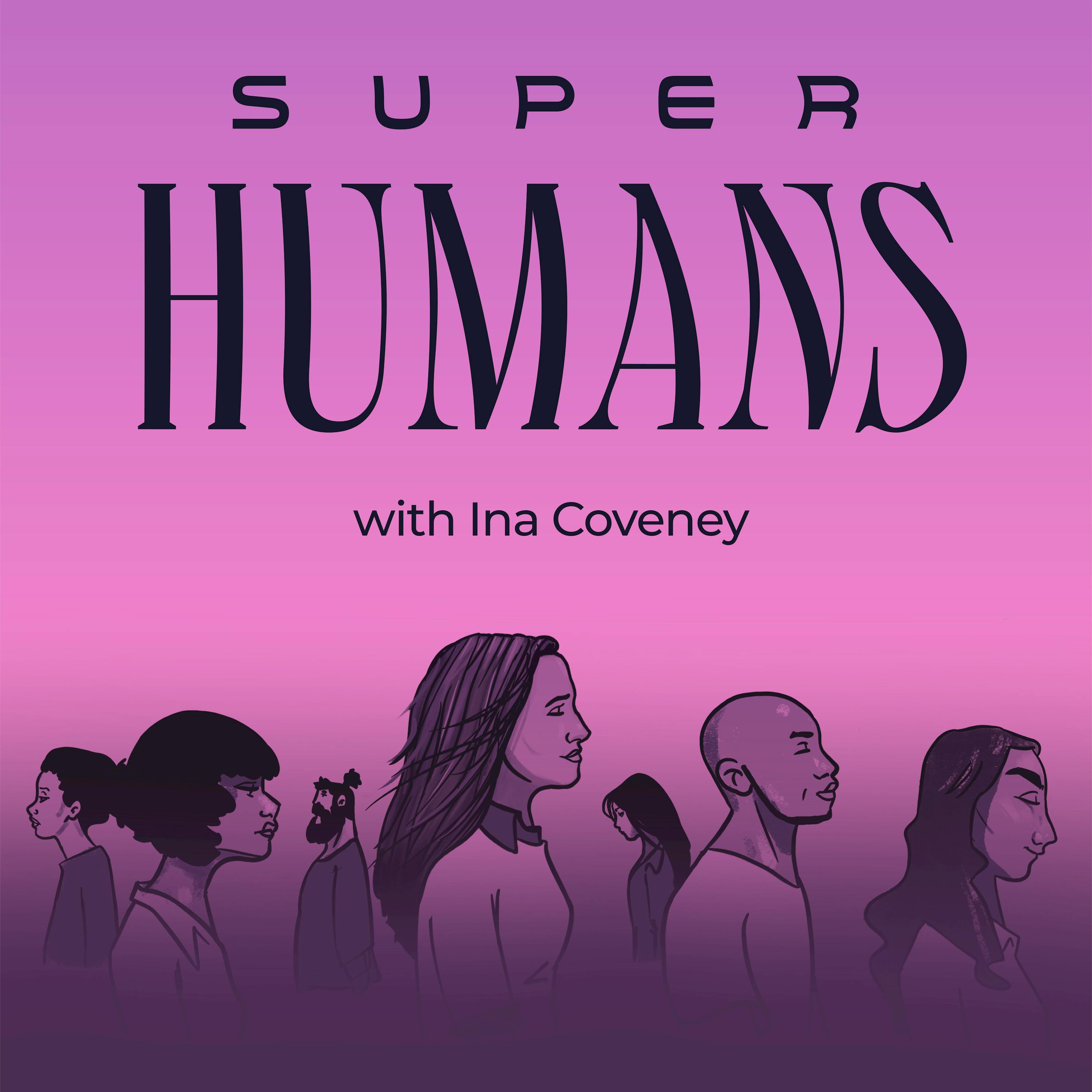
Super Humans with Ina Coveney
Ina Coveney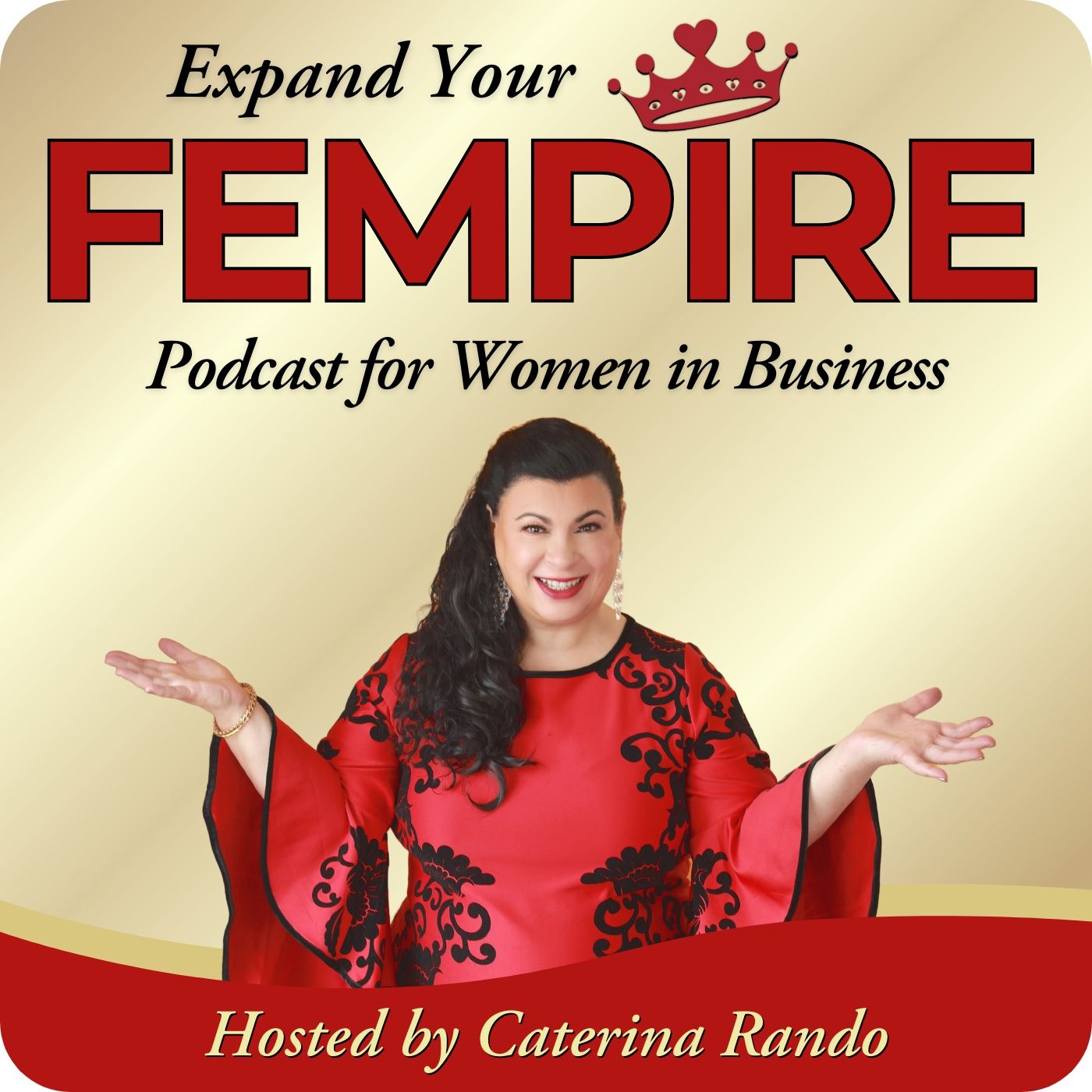
Expand Your Fempire with Caterina Rando
Caterina Rando
Painting Your Path
Clarissa Castillo-Ramsey
Just Wanted to Ask
Anne Zuckerman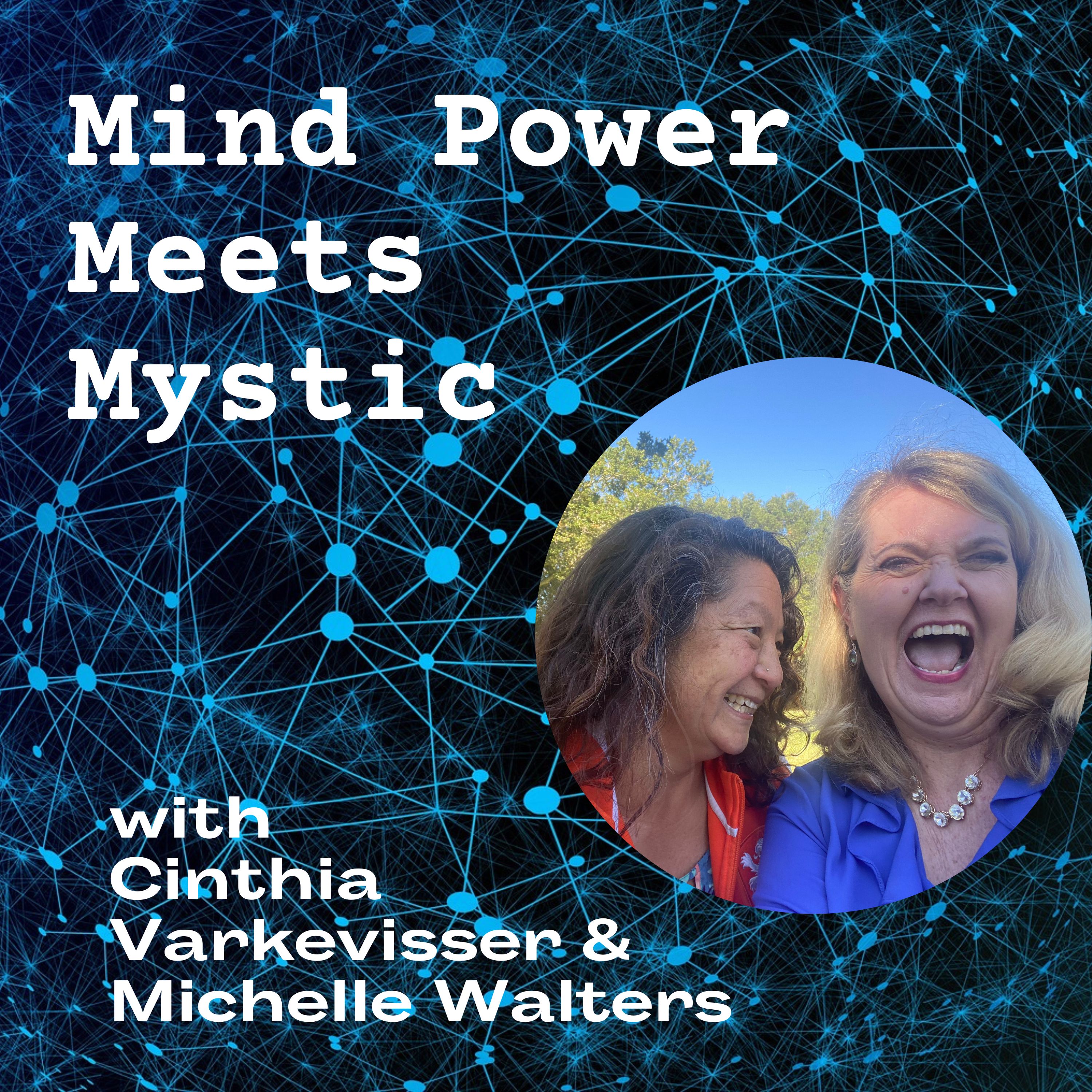
Mind Power Meets Mystic
Cinthia Varkevisser & Michelle Walters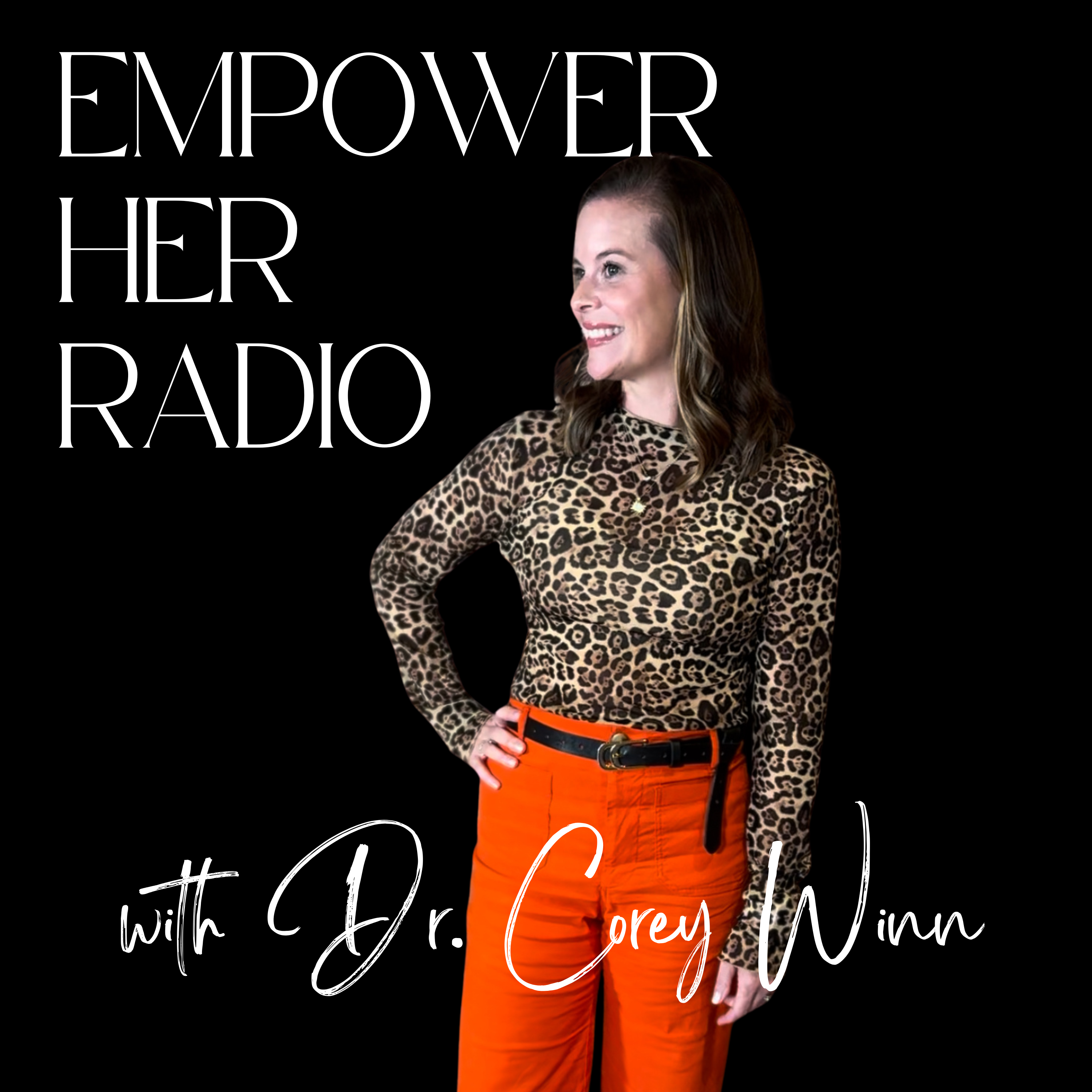
Empower HER Radio with Dr. Corey Winn
Dr. Corey Winn
Casa De Confidence Podcast | Grow Your Business, Life and Confidence
Julie DeLucca-Collins - Business Strategist for Women in Midlife
BECOME EMPOWERED
Sabine Kvenberg
The Pet Parent Hotline | Real Help for Pet Behavior, Budgets, and Everyday Stress
Amy Castro - Pet Parenting & Behavior Expert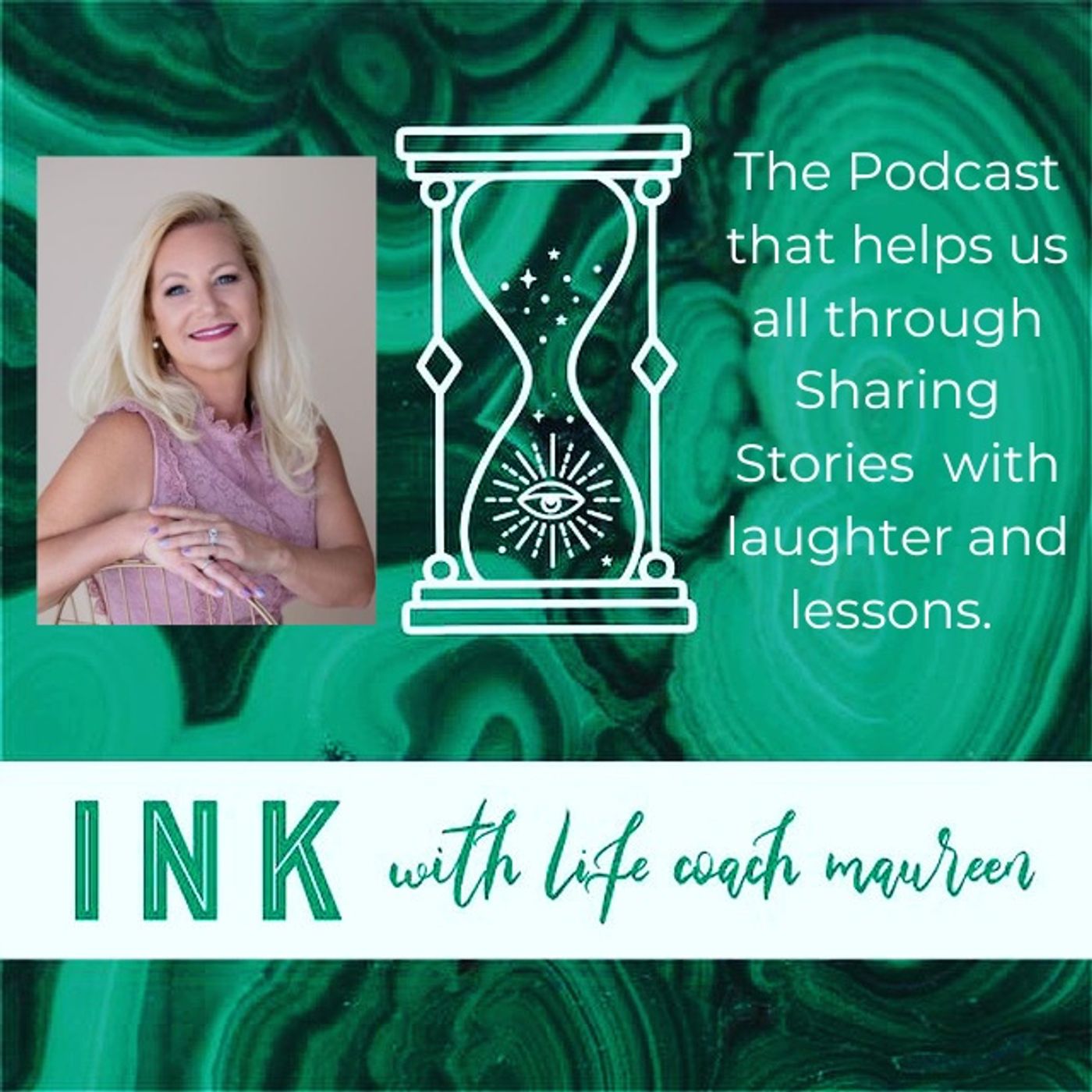
I Never Knew (INK) But My Dog Did! By Lifecoach Maureen
Maureen Scanlon
Podcasting Made Simple
Alex Sanfilippo, PodMatch.com
Grounded in Maine
Amy Bolduc (Fagan)
Ice Cold Case
Madison McGhee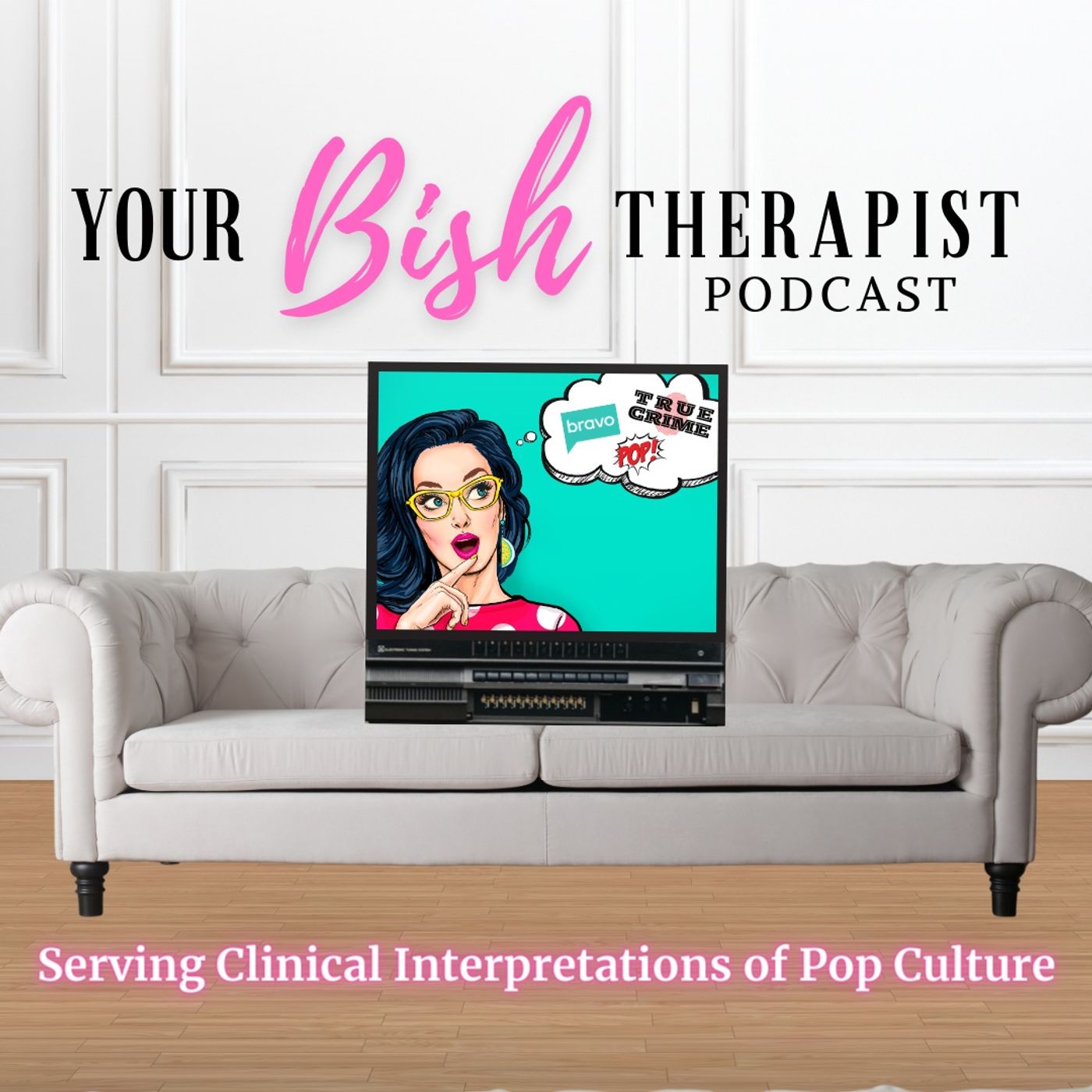
Your Bish Therapist
Melissa Reich
HIListically Speaking with Hilary Russo
Hilary Russo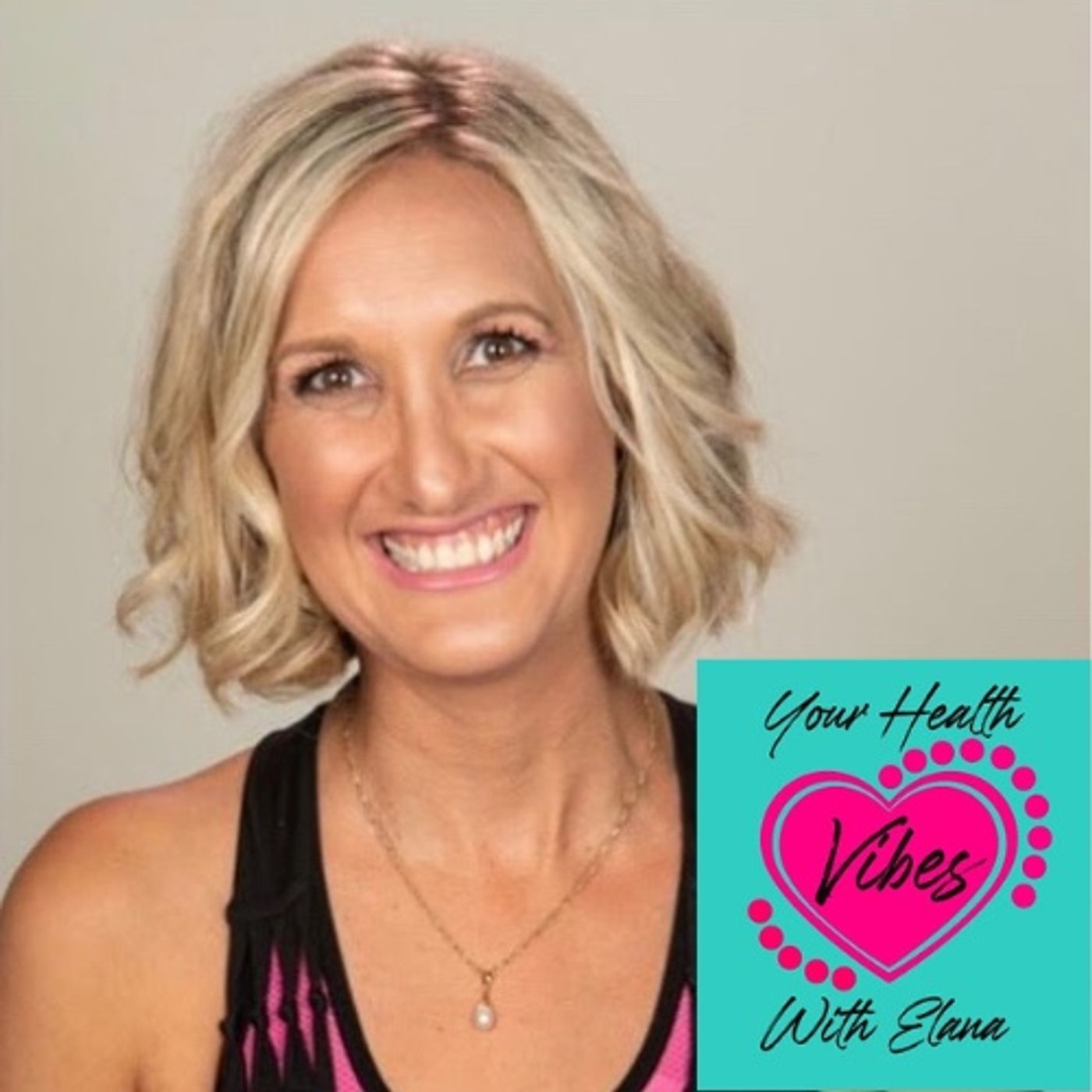
YOUR Health Vibes with Elana
WGSN-DB Going Solo Network
Don't Be Caged By Your Age
Ande Lyons
The Wellness Project with Des
Desiree Argentina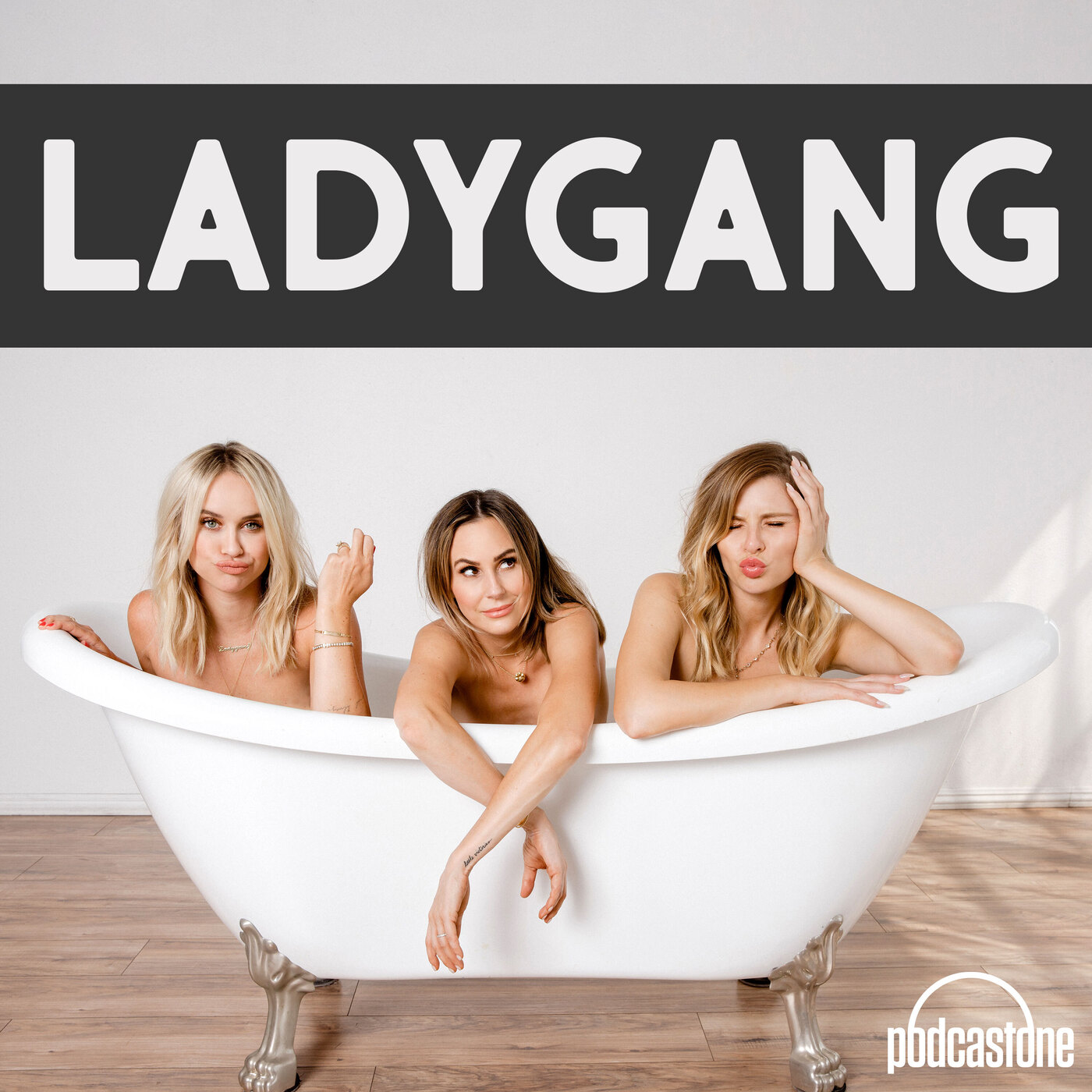
LadyGang
PodcastOne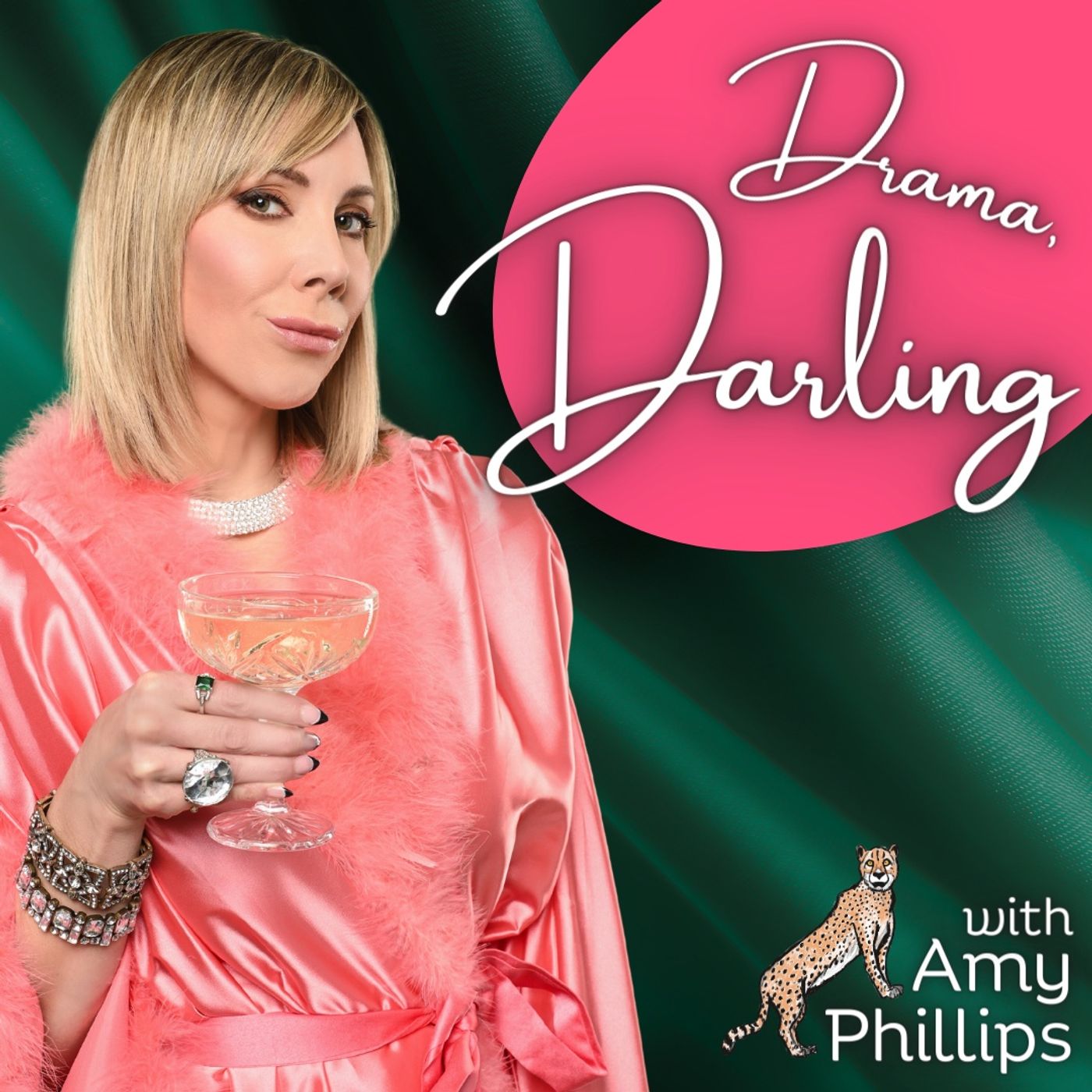
Drama, Darling: A Real Housewives Comedy Podcast
Amy Phillips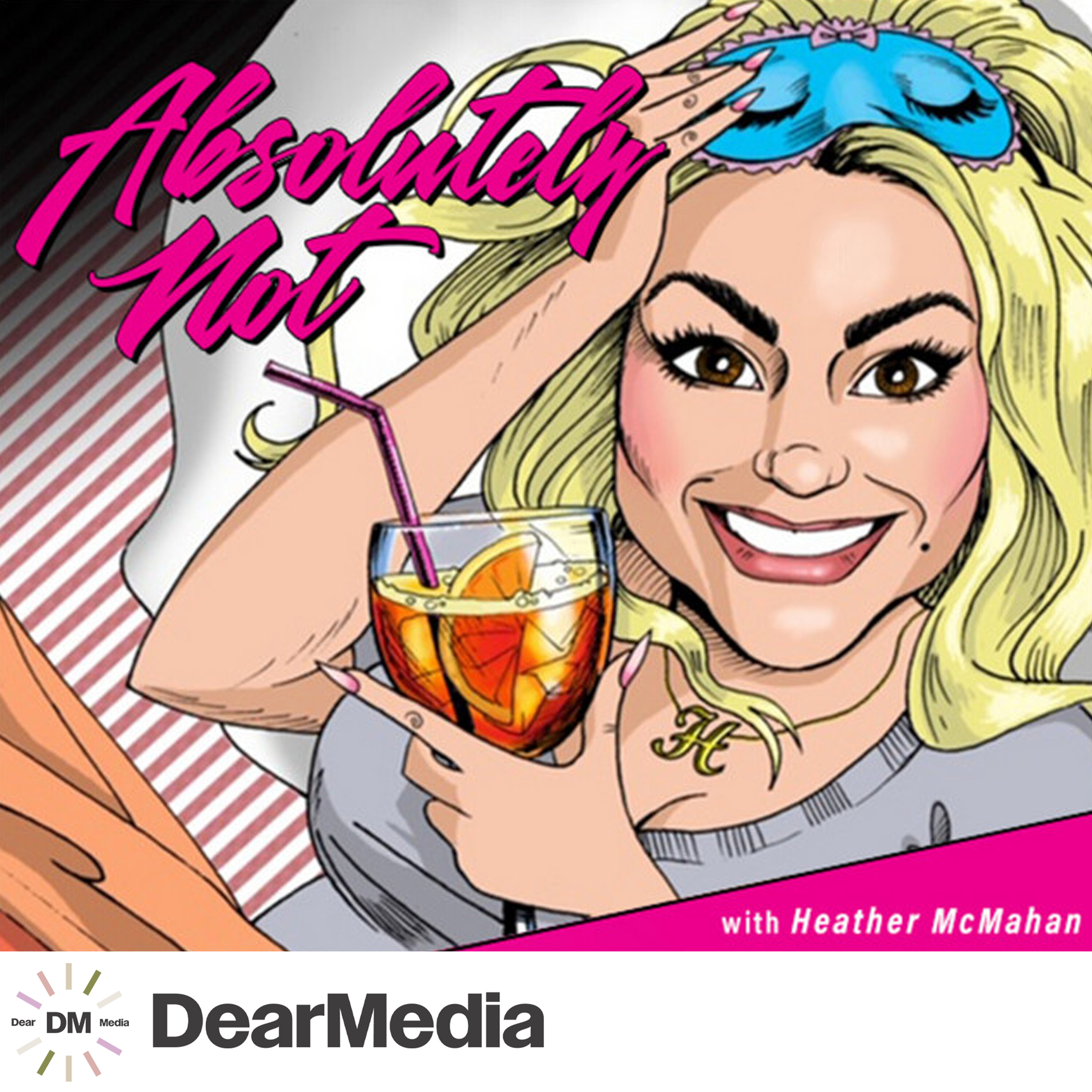
Absolutely Not
Dear Media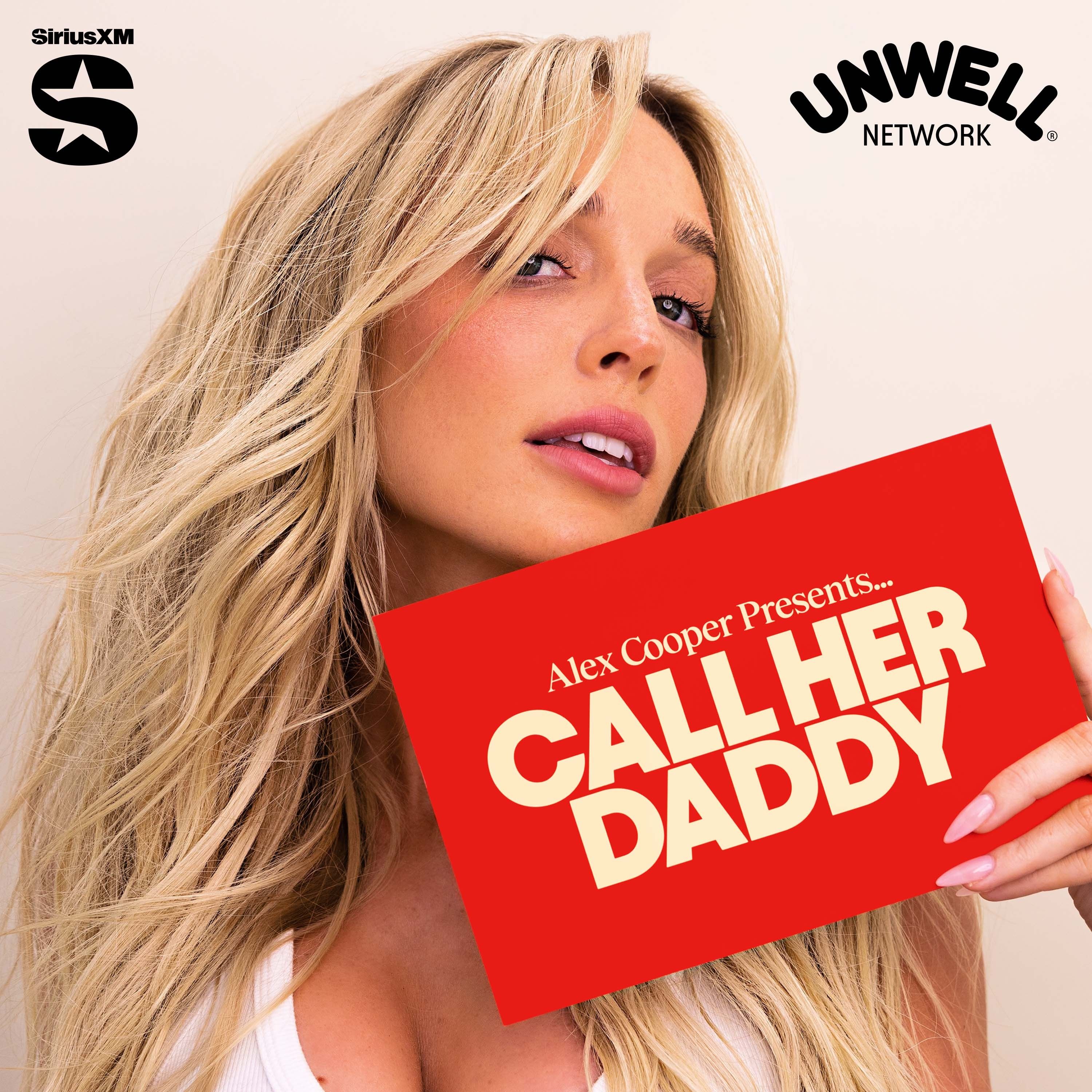
Call Her Daddy
Alex Cooper
Giggly Squad
Hannah Berner & Paige DeSorbo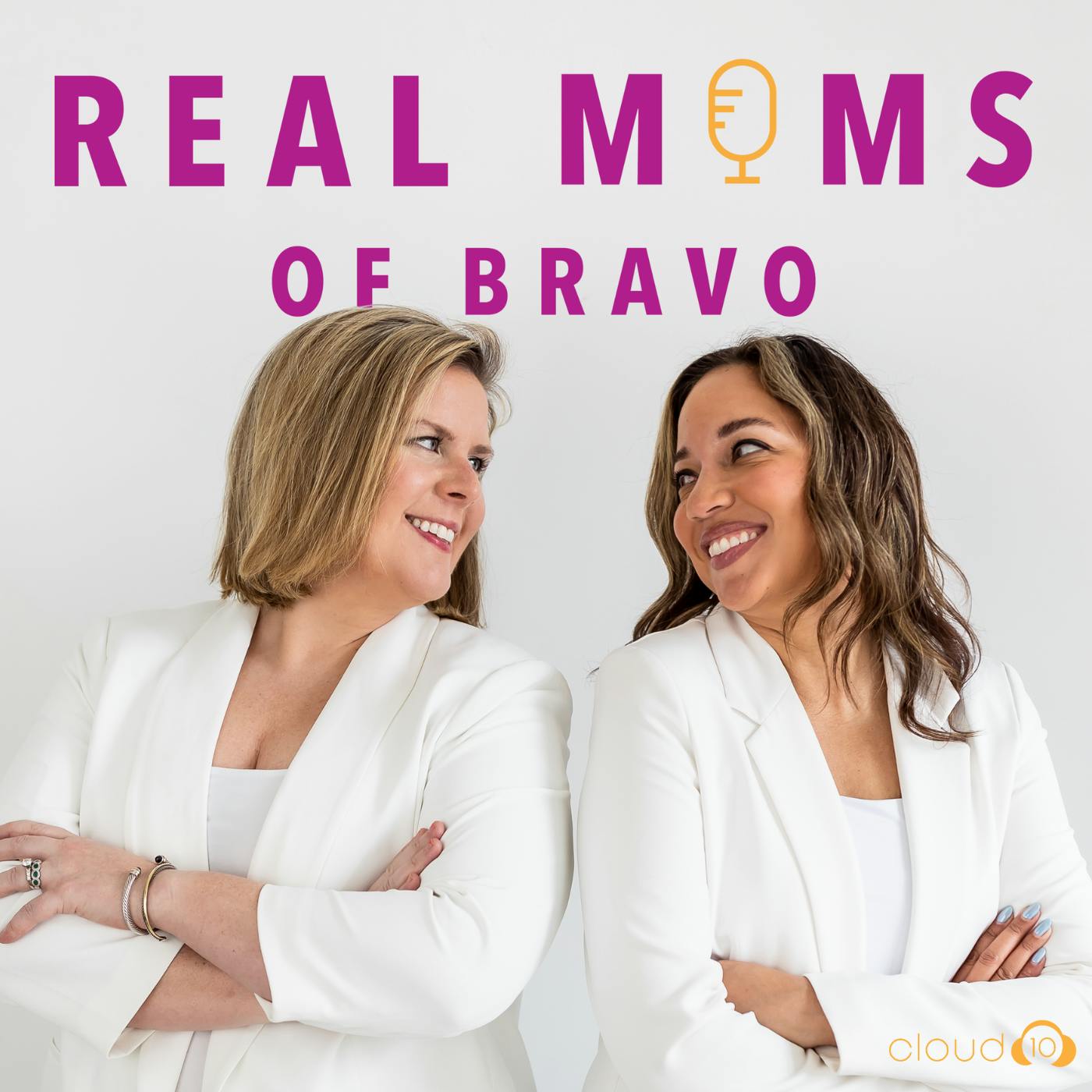
Real Moms of Bravo
Cloud10
Vegan Food Truck Business Podcast
Heather Zeitzwolfe (Savvy Frugal Vegan)
Raise Your Volume Academy with Tiphany Kane, M.Ed.
Tiphany Kane, M.Ed, CEO of KaSa Media Productions
Only One In The Room
Laura Cathcart Robbins
Beyond the Downloads | Podcast & Business Growth
Jenn Dragonette
Feed Your Soul with Kim
Kim McLaughlin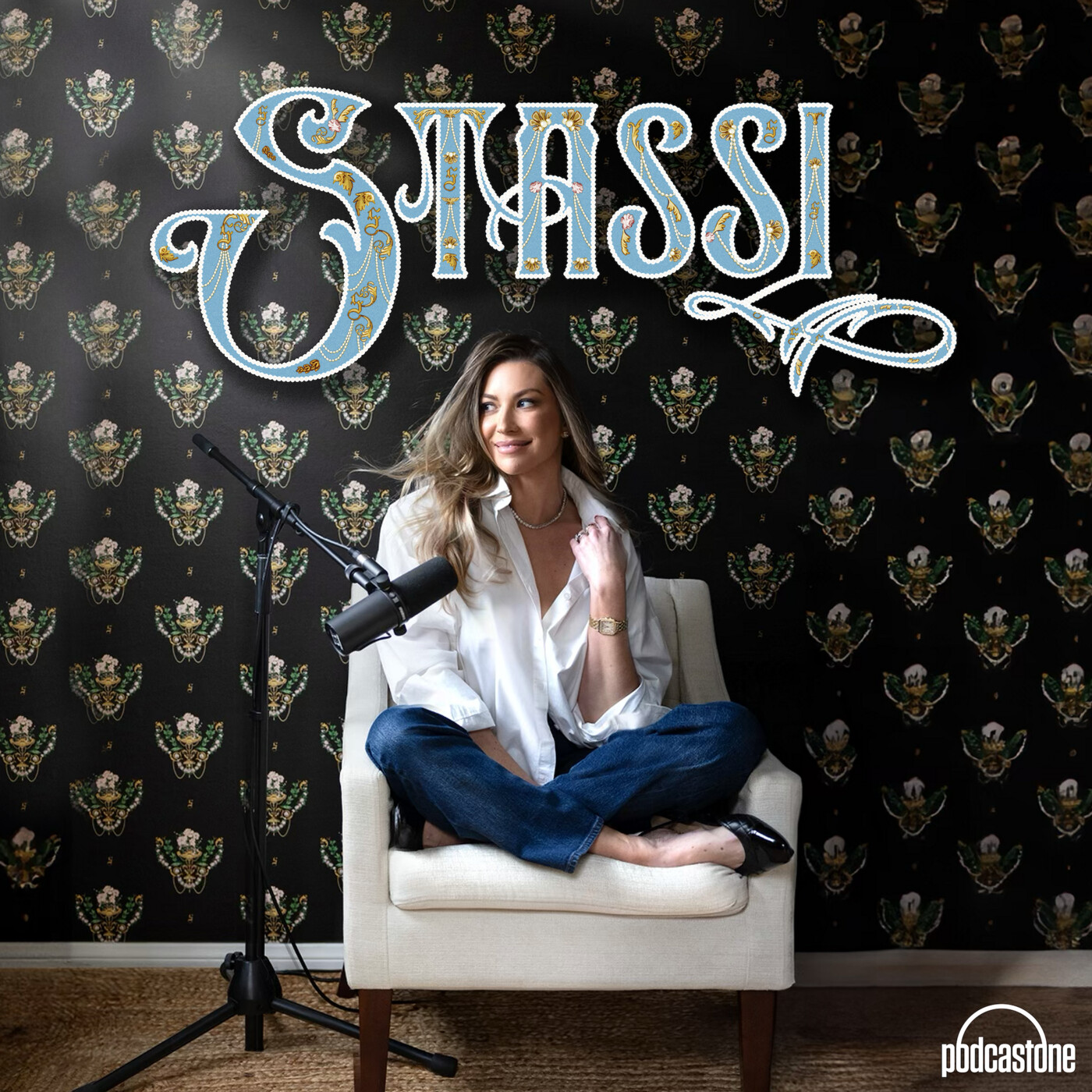
Stassi
PodcastOne




